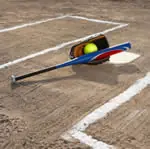
25 years ago sports camps were little more than summer diversions for kids who had too much sugar. Today, they represent not only a huge part of the youth sport landscape--with camps and clinics devoted to nearly every phase of the major participation sports--but can drastically impact a young player's ability to attract attention from college coaches and eventually capture an athletic scholarship.
We spoke to Ronald Baum, co-director of GM Sports/Homerun Softball Camps and Clinics, to get the inside scoop on this million-dollar industry, to learn why he thinks sticking to one sport isn't always a good thing and find out how parents and players can get the most out of a sports camp or clinic.
What's the difference between a camp and a clinic? Camp is usually more than a day or two--like a summer camp. Whereas a clinic is a day or maybe a couple hours on a specific topic. (Such as hitting, pitching, etc..)
Have you seen camps and clinics change over the years? Definitely. Camps and clinics, like anything involving athletics, have become more specialized. You have more kids going to their own instructors for one-on-one hitting instruction. You have camps devoted exclusively to hitting, pitching, defense, etc.
Do you think it's a good thing for kids to be that specialized? Yes and no. My philosophy has always been that kids should be playing more than one sport to enjoy themselves and avoid burnout. They should be playing sports because they want to.
There are times to specialize in one sport, but hopefully they'll continue to play the other sports as well. They shouldn't be pushed to not play a specific sport. Sometimes it's good for them to play something they are not necessarily wonderful at. It's good for them to see what their other teammates go through, when they're not the best player on the field.
Like many camps, yours offers instruction to a wide variety of skill levels and ages. How do camps such as yours accomplish this without sacrificing individual attention? We do a lot of the same stuff with the little kids that we do with the older kids, we just alter the intensity. A lot of the skills we teach are important from the beginning to the end. In softball, you use a lot of the same drills with the training clinics that you use for the college camps. Fundamentals don't really change.
Same thing when I used to work the basketball camps. A pick and roll is still a pick and roll. A jump shot is a jump shot. If we can teach them the same skills, but at a younger age, we can help them avoid mistakes. It's a lot easier than trying to break a 15 or 16-year-old of those flaws.
How does a typical day at your softball camp break down? (Is there a certain amount of time devoted to individual instruction--a certain amount of time devoted to scrimmaging?) Unless it's a summer camp, all of our camps are technique and training-based. If I'm doing a summer camp, we'll do training in the morning and in the afternoon we'll usually let them get into games. The reason you do so much training with baseball and softball is because it's tough to get kids into games. In soccer and basketball, you can get into games pretty quickly. You can't get eight and nine-year-olds throwing a ball that quickly in a camp setting.
- 1
- of
- 2

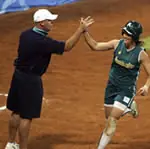

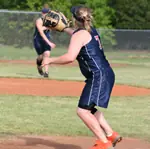

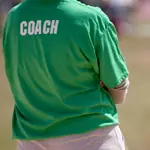

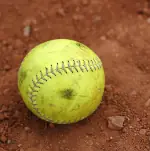
Discuss This Article